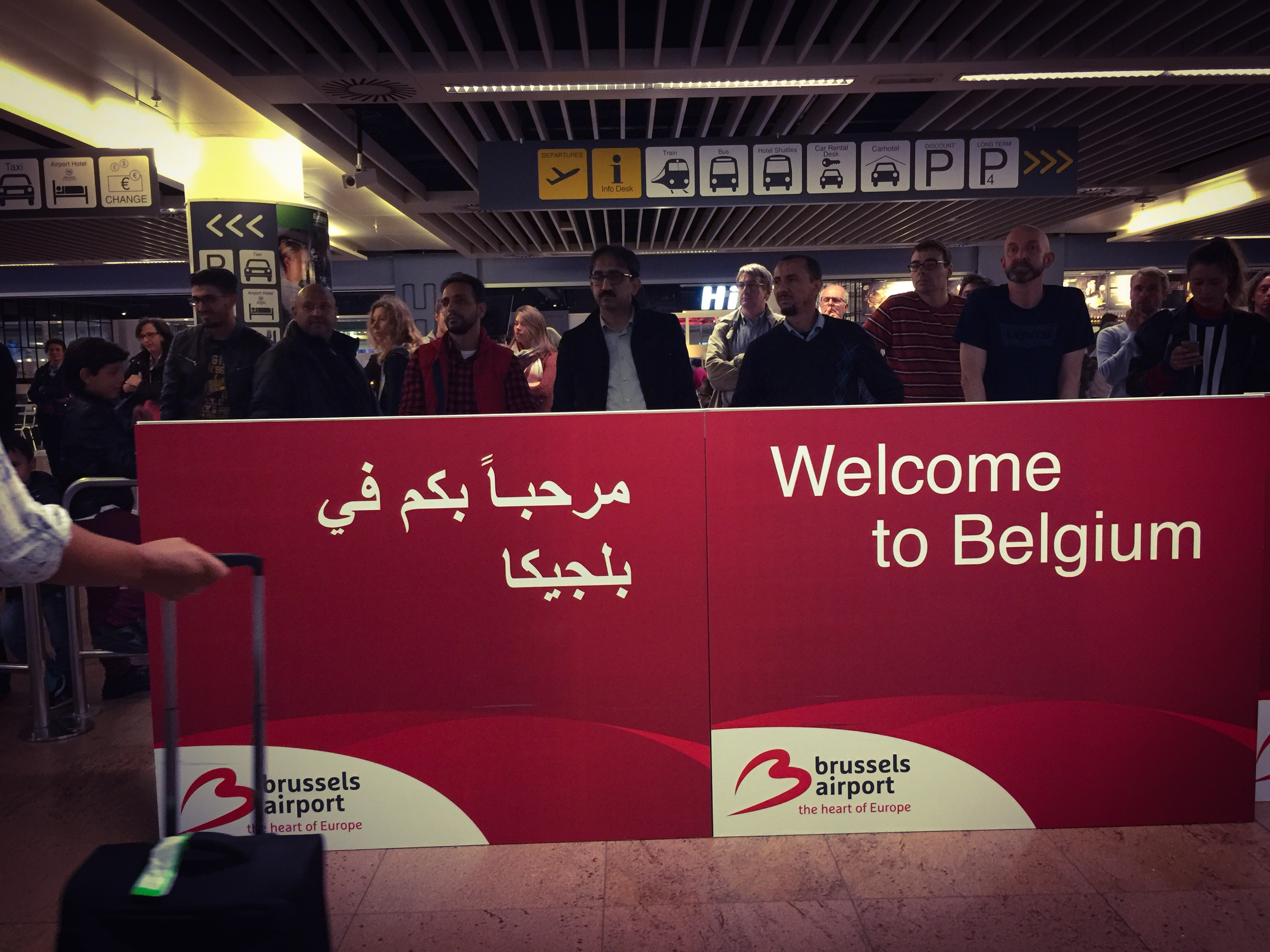The complaints are always the same. They commit crimes. They’re a strain on social services. They’ve come for economic reasons. They’re Muslims. The negatives are predictable, and unfortunately, convincing. The more they come, the more Europeans find themselves uncomfortable. Traditionally the province of the extreme right, in recent years, particularly in Germany, even in the leftist utopia that is Berlin, Greens find themselves complaining about illegal immigration, and call the cops when homeless Africans camp out on their doorsteps.
To some extent, one can understand the German reaction. The central European country remains one of the most affluent in Europe. Why wouldn’t people trying to survive want to go there? Despite cuts to its social net over the last decade, it offers amongst the best health and support services in the world. Led by small and medium-sized enterprises, as well as legendary automotive brands, the German economy continues to be one of the most vital and innovative in Europe. It’s going to attract outsiders, particularly given the perennial labor shortages Germany has suffered since the 1950s, when it began importing guest workers from southern Europe, and Turkey.
Though, back then, the manpower issues had more to do with recovering from WWII, today, a declining birth rate, and a high stream of outward immigration of Germans to other European countries, and the United States continues to create a labor vacuum which German companies find themselves continually trying to fill, recruiting highly skilled laborers from South Asia on the one hand, and medical personnel from Romania and Spain, on the other.
The issue is that persons who would otherwise be regarded as refugees, fleeing persecution, climate change, and the ongoing wars in Africa and the Middle East, are trying to get in, too. The following flyer translation describes perhaps one of the most dramatic of such cases, of refugees occupying a school in Berlin, under the threat of deportation, earlier this year. It was found posted to a lamp post in the immigrant-heavy borough of Kreuzberg.
You can never evict a movement
Demands of the school: residence for all refugees in the school. If the council cannot override the Senate and promise this, then the district should bring Senators to the school with another offer. Something must be done now. The prior agreement reached with the occupiers of Oranienplatz shows that deals with refugees are not taken seriously. The agreement has been and will continue to be broken systematically. This is why the Senate must now make a binding agreement. Peaceful solution: Article 23
“When they come to get me I’ll jump”
Integration commissioner Monika Lüke gave a legal opinion that was rejected by the Senator of the Interior, Frank Henkel (CDU): Senate commitments to refugees on Oranienplatz and in Gerhart-Hauptmann-School are binding, concluded expert Andreas Fischer-Lescano, law professor at the University of Bremen.
In April, Henkel wrote a letter to the Ministers of the Interior of other German provinces and the federal government saying: it should never be that Berlin “has to agree to a de facto distribution across federal states. Rather, it will be decided on an individual basis according to the otherwise usual criteria.” (Source: http://m.taz.de/!141172;m/)
“This is not a game for us. We are not going to back down. We want our freedom, not deportation.” (Source: http://m.taz.de/fluechtling-ueber-Berliner-Schulraeumung/!141051;m/)
District council member Hans Pahnhoff: “Senate, Ms Kolat was promising everybody from the school a solution, like it was given for the people of Oranienplatz.” Someone from the school: “They should not think that we are blind, that we do not see what is happening.” Panhoff: “Probably it will be very quick, that we say okay it is a day to move and I can only ask everybody to prepare their stuff and take the important things that you have to take with you. Because there will be the day where there will be an eviction with no offer and you will have to deal with the police right away. Anyone who does not have clear papers will have to go right away.” (20/06/2014 – Panhoff speaking at the occupied school on Ohlauerstrasse) (Source: www.youtube.com/watch?v=I6YYzE1SlG4)
“In light of the massive police presence, I ask myself how voluntary the relocation is.” Fabio Reinhardt, immigrant politicians spokesman for the Pirate Faction (900 police officers arrived at the voluntary relocation. Some had machine guns. In recent days they have been proceeding brutally.)
Why are journalists not allowed in the school? Council spokesman, Langenbach: That is an ongoing operation. What do you do when people do not want to leave voluntarily? Then we have to clearly explain our point of view to help those who do not yet understand. (Source: www.youtube.com/watch?v=m6dWnT6elJM)(24/06/2014 – Ohlauerstrasse)
Under article 23 of the Residence Act, Henkel can grant residence, right to work and a right to education to all refugees on Oranienplatz and in the school. We are not asking for anything more. This would be a peaceful solution which would not cost a fortune or require needless police intervention. Despite his claims, he can do this. This was proven by a survey carried out by the German Bundestag’s economic ministry and a statement by 100 lawyers.
Translated from the German by Kit Rickard. Photographs courtesy of Joel Schalit.






